
 (732) 246-1377
(732) 246-1377
 (732) 246-1377
(732) 246-1377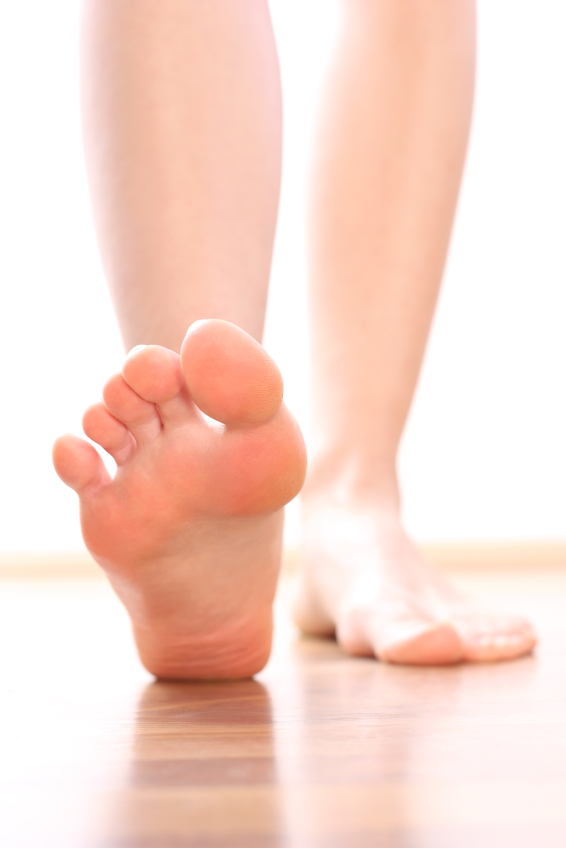 Plantar warts develop on the bottom of our feet as round growths on the skin, described as having brown dots. Warts are caused by the papillomavirus and usually go away on their own, typically not requiring any treatment. Avoid picking at the wart to prevent infection. A potential option for treating your wart is by covering it up with tape, as “warts deprived of air and sun exposure sometimes die without the need for topical treatments.”
Plantar warts develop on the bottom of our feet as round growths on the skin, described as having brown dots. Warts are caused by the papillomavirus and usually go away on their own, typically not requiring any treatment. Avoid picking at the wart to prevent infection. A potential option for treating your wart is by covering it up with tape, as “warts deprived of air and sun exposure sometimes die without the need for topical treatments.”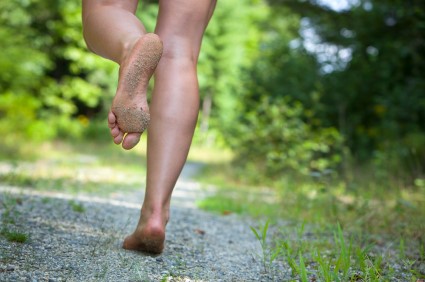 Although shoes were created in order to protect our feet, humans were made to run barefoot. Researchers believe that barefoot running is more efficient than running with shoes. Barefoot running improves running posture and helps fight pronation. Although barefoot running provides a lot of benefits, shoes have become a necessity in our society due to the fact that they protect us from disease.
Although shoes were created in order to protect our feet, humans were made to run barefoot. Researchers believe that barefoot running is more efficient than running with shoes. Barefoot running improves running posture and helps fight pronation. Although barefoot running provides a lot of benefits, shoes have become a necessity in our society due to the fact that they protect us from disease.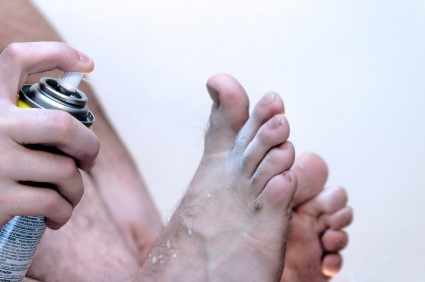 Athlete’s foot can be very problematic for people who suffer from it. It is an itchy and painful fungal infection, but there are preventative measures you can take to avoid getting it. In order to protect your feet from athlete’s foot, you should use soap and water to wash your feet daily. When you finish washing your feet, it is important to dry them thoroughly, especially between the toes. Furthermore, you should always wear sandals in public locker rooms and restrooms in order to protect your feet from fungus. Lastly, you should try to wear shoes that are lightweight and breathable in order to maintain healthy feet.
Athlete’s foot can be very problematic for people who suffer from it. It is an itchy and painful fungal infection, but there are preventative measures you can take to avoid getting it. In order to protect your feet from athlete’s foot, you should use soap and water to wash your feet daily. When you finish washing your feet, it is important to dry them thoroughly, especially between the toes. Furthermore, you should always wear sandals in public locker rooms and restrooms in order to protect your feet from fungus. Lastly, you should try to wear shoes that are lightweight and breathable in order to maintain healthy feet. 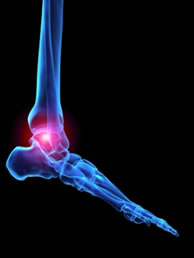 Rheumatoid arthritis is a condition that affects millions of people. It is described as a persistent pain, stiffness, and joint destruction that can lead to crippling deformities in the hands and feet. It is an autoimmune disease in which the body attacks the lining of its joints. Researchers have found a link between urinary tract infections and rheumatoid arthritis. They believe rheumatoid arthritis may be triggered by UTI’s similar to how strep throat may trigger rheumatoid fever.
Rheumatoid arthritis is a condition that affects millions of people. It is described as a persistent pain, stiffness, and joint destruction that can lead to crippling deformities in the hands and feet. It is an autoimmune disease in which the body attacks the lining of its joints. Researchers have found a link between urinary tract infections and rheumatoid arthritis. They believe rheumatoid arthritis may be triggered by UTI’s similar to how strep throat may trigger rheumatoid fever.
Because RA affects more than just your joints, including the joints in your feet and ankles, it is important to seek early diagnosis from your podiatrist if you feel like the pain in your feet might be caused by RA. For more information, consult with one of our podiatrists from Livingston Footcare. Our doctorswill treat your foot and ankle needs.
What Is Rheumatoid Arthritis?
Rheumatoid Arthritis (RA) is an autoimmune disorder in which the body’s own immune system attacks the membranes surrounding the joints. Inflammation of the lining and eventually the destruction of the joint’s cartilage and bone occur, causing severe pain and immobility.
Rheumatoid Arthritis of the Feet
Although RA usually attacks multiple bones and joints throughout the entire body, almost 90 percent of cases result in pain in the foot or ankle area.
Symptoms
- Swelling & pain in the feet
- Stiffness in the feet
- Pain on the ball or sole of feet
- Joint shift and deformation
Diagnosis
Quick diagnosis of RA in the feet is important so that the podiatrist can treat the area effectively. Your doctor will ask you about your medical history, occupation, and lifestyle to determine the origin of the condition. Rheumatoid Factor tests help to determine if someone is affected by the disease.
If you have any questions please feel free to contact our office located in North Brunswick, NJ. We offer the newest diagnostic and treatment technologies for all your foot and ankle needs.
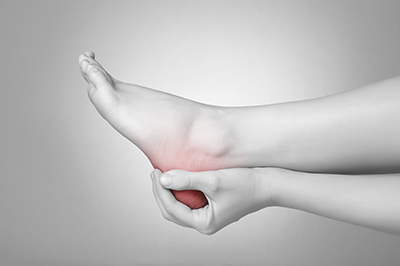 Plantar fasciitis is a painful condition that is described as a stabbing heel pain. The pain is usually at its worst in the morning, or after periods of inactivity. In order to avoid having heel pain in the future, you should change your shoes often. It isn’t healthy for your feet to wear the same shoes every day, especially if they are uncomfortable. You should also stretch and strengthen your feet muscles daily. It is also best to walk barefoot as often as you can.
Plantar fasciitis is a painful condition that is described as a stabbing heel pain. The pain is usually at its worst in the morning, or after periods of inactivity. In order to avoid having heel pain in the future, you should change your shoes often. It isn’t healthy for your feet to wear the same shoes every day, especially if they are uncomfortable. You should also stretch and strengthen your feet muscles daily. It is also best to walk barefoot as often as you can.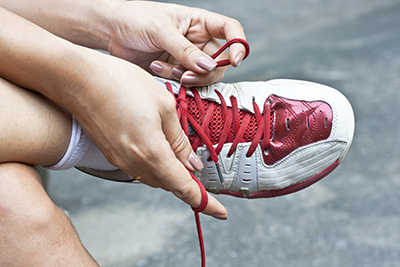 You should always make sure your shoes fit properly in order to avoid foot conditions such as plantar fasciitis. If your workout shoes are worn out, it is important to replace them. The shoes you wear should be appropriate for your gait and foot strike.
You should always make sure your shoes fit properly in order to avoid foot conditions such as plantar fasciitis. If your workout shoes are worn out, it is important to replace them. The shoes you wear should be appropriate for your gait and foot strike. 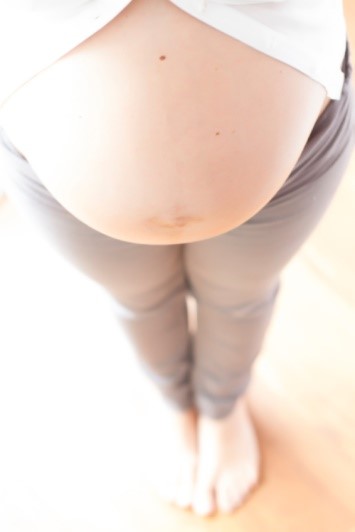 Swollen feet are a common issue that pregnant women have to deal with. It is advised that pregnant women drink six to eight glasses of water per day to stay hydrated. Pregnant women should also avoid standing up for long periods of time because this can cause fluids to be absorbed by lower parts of the body, which results in swelling. Another way to prevent swollen feet is to lower salt consumption. Salt causes the body to retain water, which causes swelling. Lastly, pregnant women should not wear tight jeans or pants because these items of clothing increase the amount of pressure on the feet.
Swollen feet are a common issue that pregnant women have to deal with. It is advised that pregnant women drink six to eight glasses of water per day to stay hydrated. Pregnant women should also avoid standing up for long periods of time because this can cause fluids to be absorbed by lower parts of the body, which results in swelling. Another way to prevent swollen feet is to lower salt consumption. Salt causes the body to retain water, which causes swelling. Lastly, pregnant women should not wear tight jeans or pants because these items of clothing increase the amount of pressure on the feet.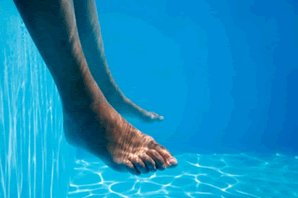 Osteoarthritis is a condition that affects the knees, hips, and feet of over 27 million Americans. In this type of arthritis, cartilage loss causes bones to rub against each other. Osteoarthritis produces a slow pain that increases over time. Activities such as swimming and yoga, with the approval of your doctor, can help relieve the pain for those with this condition.
Osteoarthritis is a condition that affects the knees, hips, and feet of over 27 million Americans. In this type of arthritis, cartilage loss causes bones to rub against each other. Osteoarthritis produces a slow pain that increases over time. Activities such as swimming and yoga, with the approval of your doctor, can help relieve the pain for those with this condition.
Swimming is a great way to exercise the feet. If you have any questions regarding the benefits of swimming on the feet, see one of our podiatrists from Livingston Footcare.Our doctorswill treat your heel pain symptoms in addition to other podiatric-related needs.
Benefits of Swimming and Foot care
Our feet receive the most stress on a daily basis. Walking, running, and long standing contribute to pain and stress on the feet. Swimming helps promote circulation and keep the body feeling great and healthy.
Benefits of swimming:
Improve blood circulation
· Swimming is a good, safe way to get in extra physical activity and improve circulation, without causing further trauma to the feet
Relieve aches or pains
· It takes all the pressure off of them, allowing the feet to relax and recover, and improves blood flow to them.
Circulation overall for diabetics
· Swimming contributes to blood flow, and increase oxygen levels within the body.
Reduce foot inflammation
· Swimming in warm water can increase blood flow and make it easier to move and stretch the afflicted foot. The feet are also exposed in water, giving them much needed air.
Swimming the helpful alternative:
Many people like the elderly and diabetics suffer from weakened muscles and joints. A water sport like swimming will support the body, thus allowing him or her to move freely. Blood flow circulation is a main trigger to tired inflamed feet.
If you have any questions, please feel free to contact our office located in North Brunswick, NJ. We offer the newest diagnostic and treatment technologies for all your foot care needs.
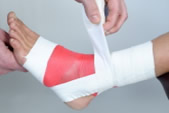 Trevor Daley of the Pittsburgh Penguins sustained a broken ankle injury after colliding with Ryan Callahan of Tampa Bay in Game 4 in May. Daley will be out for the rest of the playoffs as he is recovering, and defenseman Olli Maatta replaced Daley.
Trevor Daley of the Pittsburgh Penguins sustained a broken ankle injury after colliding with Ryan Callahan of Tampa Bay in Game 4 in May. Daley will be out for the rest of the playoffs as he is recovering, and defenseman Olli Maatta replaced Daley.
Broken ankles need immediate treatment. If you are seeking treatment, contact one of our podiatrists from Livingston Footcare. Our doctors can provide the care you need to keep you pain-free and on your feet.
Broken Ankles
A broken ankle is experienced when a person fractures their tibia or fibula in the lower leg and ankle area. Both of these bones are attached at the bottom of the leg and combine to form what we know to be our ankle.
When a physician is referring to a break of the ankle, he or she is usually referring to a break in the area where the tibia and fibula are joined to create our ankle joint. Ankles are more prone to fractures because the ankle is an area that suffers a lot of pressure and stress. There are some obvious signs when a person experiences a fractured ankle, and the following symptoms may be present.
Symptoms of a Fractured Ankle
● Excessive pain when the area is touched or when any pressure is placed on the ankle
● Swelling around the area
● Bruising of the area
● Area appears to be deformed
If you suspect an ankle fracture, it is recommended to seek treatment as soon as possible. The sooner you have your podiatrist diagnose the fracture, the quicker you’ll be on the way towards recovery.
If you have any questions feel free to contact our office located in North Brunswick, NJ. We offer the newest diagnostic tools and technologies to fit your foot and ankle needs.
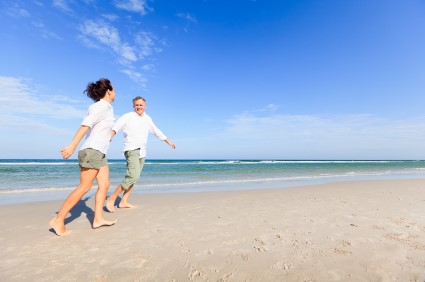 Hyperhidrosis can be categorized either as primary or secondary. Primary hyperhidrosis is characterized as affecting the hands, underarms, and the feet. Secondary is caused by an underlying medical condition such as diabetes or a hormonal disease. Both primary and secondary hyperhidrosis lead to excessive sweating. Treatment options for hyperhidrosis involve prescription antiperspirant and deodorant, botox injections, surgical treatment known as sympathectomy or the removal of the sympathetic nerve, and electrical treatment known as lontophoresis.
Hyperhidrosis can be categorized either as primary or secondary. Primary hyperhidrosis is characterized as affecting the hands, underarms, and the feet. Secondary is caused by an underlying medical condition such as diabetes or a hormonal disease. Both primary and secondary hyperhidrosis lead to excessive sweating. Treatment options for hyperhidrosis involve prescription antiperspirant and deodorant, botox injections, surgical treatment known as sympathectomy or the removal of the sympathetic nerve, and electrical treatment known as lontophoresis.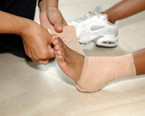 Achilles tendon injuries, or tendinopathy, “[are] one of the most common causes of pain felt behind the heel and up the back of the ankle when walking or running.” Achilles tendon injuries are more likely to develop in those who participate in extensive physical activity. They occur when too much pressure is exerted on the Achilles tendon. The stress can lead to the Achilles tendon either becoming strained or ruptured. Treatment options for an Achilles tendon injury involves icing the injured area, using a leg brace, and therapy.
Achilles tendon injuries, or tendinopathy, “[are] one of the most common causes of pain felt behind the heel and up the back of the ankle when walking or running.” Achilles tendon injuries are more likely to develop in those who participate in extensive physical activity. They occur when too much pressure is exerted on the Achilles tendon. The stress can lead to the Achilles tendon either becoming strained or ruptured. Treatment options for an Achilles tendon injury involves icing the injured area, using a leg brace, and therapy.
Achilles tendon injuries need immediate attention to avoid future complications. If you have any concerns contact one of our podiatrists of Livingston Footcare. Our doctors will treat your foot and ankle needs.
What is the Achilles Tendon?
The Achilles tendon is a tendon that connects the lower leg muscles and calf to the heel of the foot. It is the strongest tendon in the human body and is essential for making movement possible. Because this tendon is such an integral part of the body, any injuries to it can cause severe difficulties and should immediately be presented to a doctor.
What are the symptoms of an Achilles Tendon Injury?
There are various types of injuries that can affect the Achilles tendon. The two most common are Achilles tendinitis and ruptures of the tendon.
Achilles Tendinitis Symptoms
-Inflammation
-Dull to Severe Pain
-Increased blood flow to the tendon
-Thickening of the tendon
Rupture Symptoms
-Extreme pain and swelling in the foot
-Total immobility
Treatment and Prevention
Achilles tendon injuries are diagnosed by a thorough physical evaluation, which can include an MRI. Treatment involves rest, physical therapy, and in some cases, surgery. However, various preventative measures can be taken to avoid these injuries, such as:
-Thorough stretching of the tendon before and after exercise
-Strengthening exercises like calf raises, squats, leg curls, leg extensions, leg raises, lunges, and leg presses
If you have any questions feel free to contact our office located in North Brunswick, NJ. We offer the newest diagnostic tools and technologies to fit your foot and ankle needs.
 As our children are transitioning into competitive sports with the changing of seasons, the American College of Foot and Ankle Surgeons (ACFAS) suggests that parents “take the necessary precautions to prevent foot and ankle injuries that can occur when going from indoor to outdoor sports.” Sports-related injuries can occur across any season or physical activity, according to Gregory Catalano, foot and ankle surgeon and member of the ACFAS. Tips for preventing the risk of injuries include getting medical evaluations, increasing break time between activity, wearing proper and comfortable shoes, communicating with your children, and using the RICE, or the rest, ice, compression and elevation method to treat sports-related injuries.
As our children are transitioning into competitive sports with the changing of seasons, the American College of Foot and Ankle Surgeons (ACFAS) suggests that parents “take the necessary precautions to prevent foot and ankle injuries that can occur when going from indoor to outdoor sports.” Sports-related injuries can occur across any season or physical activity, according to Gregory Catalano, foot and ankle surgeon and member of the ACFAS. Tips for preventing the risk of injuries include getting medical evaluations, increasing break time between activity, wearing proper and comfortable shoes, communicating with your children, and using the RICE, or the rest, ice, compression and elevation method to treat sports-related injuries.
Sports related foot and ankle injuries need proper treatment before players can go back to their regular routines. If you have any concerns, contact one of our podiatrists of Livingston Footcare. Our doctors will treat your foot and ankle needs.
Sport Related Foot and Ankle Injuries
Foot and ankle injuries are a common occurrence when it comes to athletes of any sport. While many athletes dismiss the initial aches and pains, the truth is that ignoring potential foot and ankle injuries can lead to serious problems. As athletes continue to place pressure and strain the area further, a mild injury can turn into something as serious as a rupture and may lead to a permanent disability. There are many factors that contribute to sports related foot and ankle injuries, which include failure to warm up properly, not providing support or wearing bad footwear. Common injuries and conditions athletes face, including:
● Plantar Fasciitis
● Plantar Fasciosis
● Achilles Tendinitis
● Achilles Tendon Rupture
● Ankle Sprains
Sports-related injuries are commonly treated using the RICE method. This includes rest, applying ice to the injured area, compression and elevating the ankle. More serious sprains and injuries may require surgery, which could include arthroscopic and reconstructive surgery. Rehabilitation and therapy may also be required in order to get any recovering athlete to become fully functional again. Any unusual aches and pains an athlete sustains must be evaluated by a licensed, reputable medical professional.
If you have any questions feel free to contact our office located in North Brunswick, NJ. We offer the newest diagnostic tools and technologies to fit your foot and ankle needs.
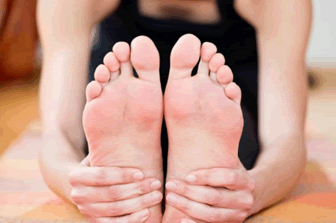 If you’re waking in the mornings with pain in your feet, it may be because you have plantar fasciitis. Plantar fasciitis is described as heel pain that occurs as a result of inflammation and injury of the plantar fascia, which stretches along the bottom of our feet’s soles. Our plantar fascias are “prone to overuse injuries,” and symptoms of the condition include “morning stiffness, stiffness after working out, and pain while walking barefoot.” Treating your plantar fasciitis involves investing in custom orthotics, changing your footwear, anti-inflammatory medication, splints and physical therapy.
If you’re waking in the mornings with pain in your feet, it may be because you have plantar fasciitis. Plantar fasciitis is described as heel pain that occurs as a result of inflammation and injury of the plantar fascia, which stretches along the bottom of our feet’s soles. Our plantar fascias are “prone to overuse injuries,” and symptoms of the condition include “morning stiffness, stiffness after working out, and pain while walking barefoot.” Treating your plantar fasciitis involves investing in custom orthotics, changing your footwear, anti-inflammatory medication, splints and physical therapy.
Plantar fasciitis can be very painful and inconvenient. If you are experiencing heel pain or symptoms of plantar fasciitis, contact one of our podiatrists of Livingston Footcare. Our doctors will treat your foot and ankle needs.
What is Plantar Fasciitis?
Plantar fasciitis is the inflammation of the thick band of tissue that runs along the bottom of your foot, known as the plantar fascia, and causes mild to severe heel pain.
What Causes Plantar Fasciitis?
· Excessive running
· Non-supportive shoes
· Overpronation
· Repeated stretching and tearing of the plantar fascia
How Can It Be Treated?
· Conservative measures – anti-inflammatories, ice packs, stretching exercises, physical therapy, orthotic devices
· Shockwave therapy – sound waves are sent to the affected area to facilitate healing and are usually used for chronic cases of plantar fasciitis
· Surgery – usually only used as a last resort when all else fails. The plantar fascia can be surgically detached from the heel
While very treatable, plantar fasciitis is definitely not something that should be ignored. Especially in severe cases, speaking to your doctor right away is highly recommended to avoid complications and severe heel pain. Your podiatrist can work with you to provide the appropriate treatment options tailored to your condition.
If you have any questions feel free to contact our office located in North Brunswick, NJ. We offer the newest diagnostic tools and technologies to fit your foot and ankle needs.
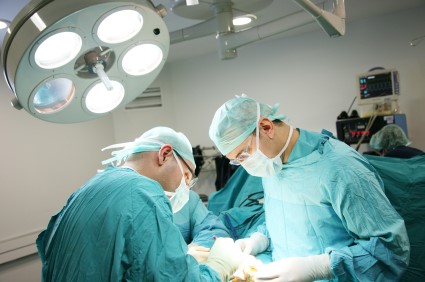 Kody Walker, Arkansas’ running back, had to undergo surgery for suffering a broken foot during practice in April. “It’s a pretty standard foot injury that we’ve dealt with in the past and we expect him to be full-go by June. If anyone knows how to battle adversity it’s Kody Walker,” said Arkansas coach Bret Bielema. Walker had missed games in previous seasons due to a broken hand and other injuries.
Kody Walker, Arkansas’ running back, had to undergo surgery for suffering a broken foot during practice in April. “It’s a pretty standard foot injury that we’ve dealt with in the past and we expect him to be full-go by June. If anyone knows how to battle adversity it’s Kody Walker,” said Arkansas coach Bret Bielema. Walker had missed games in previous seasons due to a broken hand and other injuries.
Foot surgery is sometimes necessary to fix a foot ailment. To learn more, contact one of our podiatrists of Livingston Footcare. Our doctors will treat your foot and ankle needs.
When Is Surgery Necessary?
Foot and ankle surgery is generally reserved for cases in which less invasive, conservative procedures have failed to help with the problem. Some of the cases in which surgery may be necessary are:
● Removing foot deformities like bone spurs and bunions
● Severe arthritis that has caused bone issues
● Cosmetic reconstruction
What Types of Surgery Are There?
The type of surgery you receive will depend on the nature of the problem you have. Some of the possible surgeries include:
● Bunionectomy for painful bunions
● Surgical fusion for realignment of bones
● Neuropathy decompression surgery to treat nerve damage
Benefits of Surgery
Although surgery is usually a last resort, it can provide more complete pain relief compared to non-surgical methods and may allow you to finally resume full activity.
Surgical techniques have also become increasingly sophisticated. Techniques like endoscopic surgery allow for smaller incisions and faster recovery times.
If you have any questions feel free to contact our office located in North Brunswick, NJ. We offer the newest diagnostic tools and technologies to fit your foot and ankle needs.